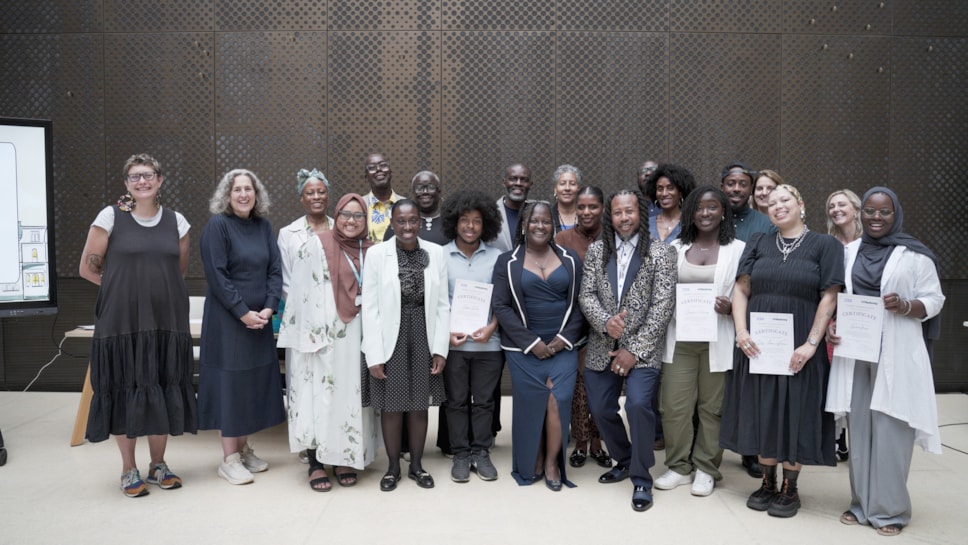Hackney Thinking Spaces phase one finale showcases achievements and lays recommendations for future change
Hackney Thinking Spaces phase one finale showcases achievements and lays recommendations for future change
Hackney Council recently hosted a powerful finale event marking the end of phase one of the Hackney Thinking Spaces project, a community-led initiative designed to confront the deep and enduring effects of systemic racism on Black and Global Majority residents in the borough.
Held on Thursday 24 July, the celebration brought together residents, community leaders, and partners to reflect on the programme’s achievements and lay the groundwork for future change. Through interactive group activities and visual storytelling, attendees explored how the initiative has helped foster healing, connection, and collective action over the past year.
The event featured keynote speeches from Dr Sandra Husbands, Director of Public Health for City and Hackney, and Professor Patrick Vernon OBE. Dr Husbands reflected on the heart of the initiative:
“Hackney Thinking Spaces has shown the power of what happens when we listen deeply, make space for healing, and give communities the tools and trust to shape the systems that affect their lives. This is public health at its most human grounded in truth, led by lived experience, and focused on justice.”
Launched in March 2024, the project was a direct response to long-standing racial inequalities and recent safeguarding reviews. Delivered by IFoundMe Therapeutic Counselling CIC in partnership with the Hackney Thinking Spaces Community Advisory Board, it created therapeutic group spaces for residents to process racial trauma and co-design solutions for lasting change.
From April 2024 to March 2025, the programme ran 20 therapeutic groups attended by hundreds across Hackney. The sessions were described by participants as safe, empowering, and transformative. Many shared that they felt more hopeful, more connected, and better equipped to advocate for themselves. Some have even stepped forward as peer mentors or taken up opportunities to influence local decision-making.
Emily Lewis, Managing Director of IFoundMe, said:
“Hackney Thinking Spaces is very close to my heart, it’s a reflection of hope, healing, and community. When we create brave spaces for people to be heard, seen, and valued, transformation becomes possible. Every story shared is a seed planted, and together, we’re growing something powerful and beautiful.”
A key strength of the project has been its collaborative leadership. The Community Advisory Board made up of 18 residents from Black and other racially minoritised backgrounds, alongside local system leaders worked over the year to develop a set of powerful, co-produced recommendations aimed at tackling systemic racism in local institutions.
These recommendations focus on long-term change and include:
-
Promoting preventative approaches to emotional health and wellbeing tailored to Hackney’s diverse communities
-
Reviewing commissioning processes to improve access to funding
-
Increasing access to safe community spaces
-
Reimagining Black History 365 to become a meaningful platform for education, empowerment, and fulfilment
Professor Patrick Vernon OBE emphasised the wider significance of the initiative:
“This is not just a project, it’s a movement for dignity, for equity, and for community-led change. Hackney Thinking Spaces has created a model that others can learn from. It’s about putting people before process, and values before systems. The next step is to keep this momentum going and make these recommendations a lived reality.”
As phase one concludes, Hackney Council and its partners remain committed to embedding the model into long-term planning and policy. Efforts are already underway to secure funding and ensure that the voices of residents continue to shape the services and systems that affect their lives.
Hackney Thinking Spaces has sparked something bigger, a lasting shift toward justice, healing, and equity. The journey is far from over, but the path forward is clearer than ever.
Read the full article here!
